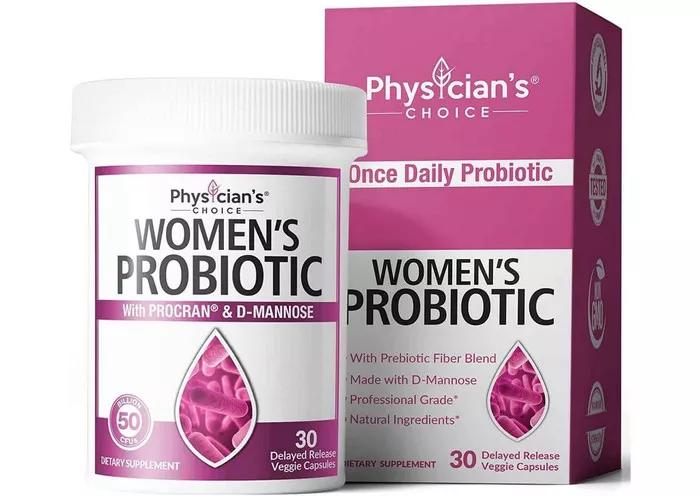Breastfeeding is widely recognized as the optimal way to nourish infants, providing essential nutrients and bolstering the immune system. However, recent research has highlighted another crucial aspect of breastfeeding: the role of probiotics in maternal and infant health. Probiotics, known as beneficial bacteria, offer a range of advantages when consumed by breastfeeding mothers and their babies. This article explores the science-backed benefits of probiotics during breastfeeding, shedding light on how these microorganisms contribute to overall health and well-being.
Understanding Probiotics
Probiotics are live microorganisms that, when consumed in adequate amounts, confer health benefits beyond basic nutrition. They primarily consist of bacteria and yeasts that are beneficial for gut health. Commonly found in fermented foods like yogurt, kefir, and kimchi, probiotics can also be taken in supplement form. These microorganisms play a crucial role in maintaining a balanced gut flora, which is essential for digestive health and overall immunity.
Transmission of Probiotics from Mother to Infant
During pregnancy and childbirth, a mother’s microbiota undergoes significant changes influenced by factors such as diet, environment, and antibiotics. The mode of delivery (vaginal vs. cesarean) further influences the initial microbial colonization of the infant. Breast milk serves as a crucial vehicle for the transmission of maternal probiotics to the newborn, ensuring the establishment of a healthy gut microbiome in the early stages of life. This transmission is facilitated through human milk oligosaccharides (HMOs), which serve as prebiotics, nourishing beneficial bacteria in the infant’s gut.
Benefits of Probiotics for Breastfeeding Mothers
Supporting Maternal Gut Health: Probiotics help maintain a balanced gut microbiome in breastfeeding mothers, reducing the risk of gastrointestinal issues such as constipation, diarrhea, and irritable bowel syndrome (IBS).
Preventing Mastitis: Mastitis, a painful inflammation of the breast tissue, can disrupt breastfeeding. Probiotics have been shown to reduce the incidence of mastitis by enhancing immune function and preventing bacterial overgrowth in the mammary glands.
Enhancing Nutrient Absorption: By promoting healthy digestion, probiotics improve the absorption of essential nutrients from food, ensuring that breastfeeding mothers receive adequate nutrition to support lactation.
Boosting Immune Function: A significant portion of the immune system resides in the gut. Probiotics help strengthen the immune response, potentially reducing the frequency and severity of infections in breastfeeding mothers.
See Also: The Benefits of Coconut Milk for Breastfeeding
Benefits of Probiotics for Breastfed Infants
Supporting Digestive Health: Probiotics contribute to the development of a healthy gut microbiome in infants, which is crucial for proper digestion and absorption of nutrients from breast milk.
Reducing Colic and Infantile Gastrointestinal Disorders: Probiotics have been linked to a decrease in infantile colic, as well as a lower incidence of gastrointestinal issues such as reflux, diarrhea, and constipation.
Enhancing Immune Function: Similar to their effects in adults, probiotics support the infant’s developing immune system, potentially reducing the risk of allergies, eczema, and respiratory infections.
Protecting Against Necrotizing Enterocolitis (NEC): Premature infants are particularly vulnerable to NEC, a serious gastrointestinal condition. Probiotics, especially strains like Lactobacillus and Bifidobacterium, have shown promise in reducing the risk of NEC in preterm babies.
Selecting Probiotics for Breastfeeding
When considering probiotics during breastfeeding, it’s essential to choose strains that are well-researched and safe for both mother and baby. Lactobacillus and Bifidobacterium species are among the most studied and widely recommended probiotics for breastfeeding women. These strains are generally recognized as safe (GRAS) by regulatory authorities and have demonstrated benefits in clinical studies related to maternal and infant health.
Incorporating Probiotics into Breastfeeding Practices
Dietary Sources: Encouraging mothers to consume probiotic-rich foods such as yogurt, kefir, sauerkraut, and miso can naturally increase probiotic intake. These foods provide a range of beneficial bacteria that can positively impact both maternal and infant health.
Probiotic Supplements: In cases where dietary intake is insufficient or when specific health conditions warrant additional support, probiotic supplements can be considered. These supplements should be chosen based on strain specificity, dosage, and safety considerations, especially during pregnancy and lactation.
Consultation with Healthcare Providers: Before starting any probiotic regimen, breastfeeding mothers should consult with their healthcare providers, including lactation consultants and pediatricians. Professional guidance ensures that probiotic use aligns with individual health needs and addresses any potential concerns.
Conclusion
In conclusion, the benefits of probiotics during breastfeeding are multifaceted, encompassing maternal gut health, immune support, and the promotion of a healthy gut microbiome in infants. Through the transmission of beneficial bacteria via breast milk, probiotics play a crucial role in establishing and maintaining optimal health from infancy through adulthood. As research continues to evolve, further insights into the specific mechanisms and benefits of probiotics will continue to shape recommendations for breastfeeding mothers worldwide. By integrating probiotics into breastfeeding practices responsibly and under professional guidance, mothers can support their own well-being and contribute to the long-term health of their infants.


